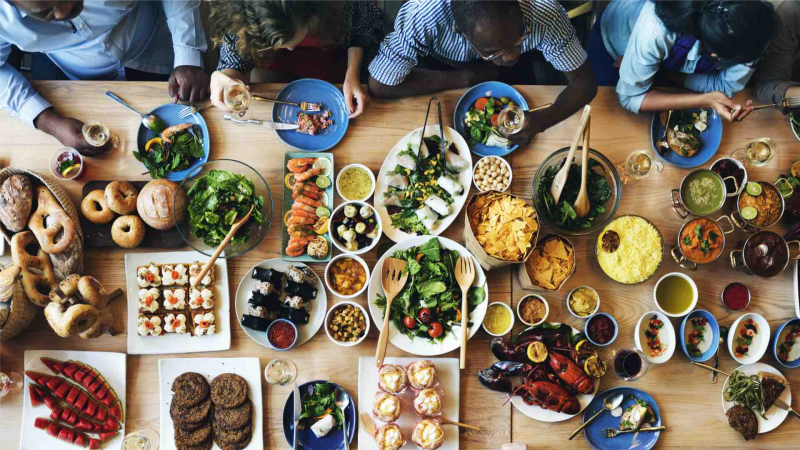Dining Etiquette
Dining etiquette is one of the Eritrean cultures, customs, and etiquette that you should know. Always wait for the oldest person to take the food out of the dish, bless the food, or appoint someone to do the honors before eating. Traditional meals are typically eaten with the hands, but for foreigners, exceptions are frequently made. Do not eat the portion that is in front of you. Some people consider it impolite to ask for more.
Dining customs are similar to those found elsewhere in the region; you will be served food from a communal plate and are expected to eat with your right hand from the area of the plate directly in front of you. The Eritreans will welcome you ceremoniously with their coffee, which is widely regarded as some of the best in the world. The coffee is roasted and ground in your presence before being boiled and served heavily sweetened, black, and in small cups without handles.
Typically, you drink three cups, and fresh popcorn is often served with it. Common foods include porridge, often served with butter (and eaten, in this case. with a wooden spoon); kitfo, a kind of raw meat preparation served with cheese and cabbage; and kooch, a kind of bread made from a local plant. A very popular Eritrean bread used with many meals and dishes is injera, which is made from local grain, teff. It has a slightly sour taste and is often served with a stew of meats and vegetables called wat; you break off a piece of the teff and use it like a utensil. Interestingly, in Eritrea, Orthodox Christians, as is the case with observant Muslims, do not eat pork or any meat on Wednesdays and Fridays.









